
Economic consulting firm CRA International (NASDAQ: CRAI) reported Q1 CY2025 results beating Wall Street’s revenue expectations, with sales up 5.9% year on year to $181.9 million. The company’s full-year revenue guidance of $725 million at the midpoint came in 0.9% above analysts’ estimates. Its non-GAAP profit of $2.22 per share was 13.8% above analysts’ consensus estimates.
Is now the time to buy CRA? Find out by accessing our full research report, it’s free.
CRA (CRAI) Q1 CY2025 Highlights:
- Revenue: $181.9 million vs analyst estimates of $176.6 million (5.9% year-on-year growth, 3% beat)
- Adjusted EPS: $2.22 vs analyst estimates of $1.95 (13.8% beat)
- Adjusted EBITDA: $24.79 million vs analyst estimates of $22.1 million (13.6% margin, 12.2% beat)
- The company reconfirmed its revenue guidance for the full year of $725 million at the midpoint
- Operating Margin: 14%, up from 11.4% in the same quarter last year
- Free Cash Flow was -$80.97 million compared to -$63.81 million in the same quarter last year
- Market Capitalization: $1.10 billion
“Building on the momentum of an exceptional fiscal 2024, CRA continued its strong performance into the first quarter, setting new records for financial results,” said Paul Maleh, CRA’s President and Chief Executive Officer.
Company Overview
Often retained for high-stakes matters with multibillion-dollar implications, CRA International (NASDAQ: CRAI) provides economic, financial, and management consulting services to corporations, law firms, and government agencies for litigation, regulatory proceedings, and business strategy.
Sales Growth
A company’s long-term sales performance is one signal of its overall quality. Any business can put up a good quarter or two, but the best consistently grow over the long haul.
With $697.5 million in revenue over the past 12 months, CRA is a small player in the business services space, which sometimes brings disadvantages compared to larger competitors benefiting from economies of scale and numerous distribution channels. On the bright side, it can grow faster because it has more room to expand.
As you can see below, CRA’s sales grew at a solid 7.9% compounded annual growth rate over the last five years. This shows it had high demand, a useful starting point for our analysis.
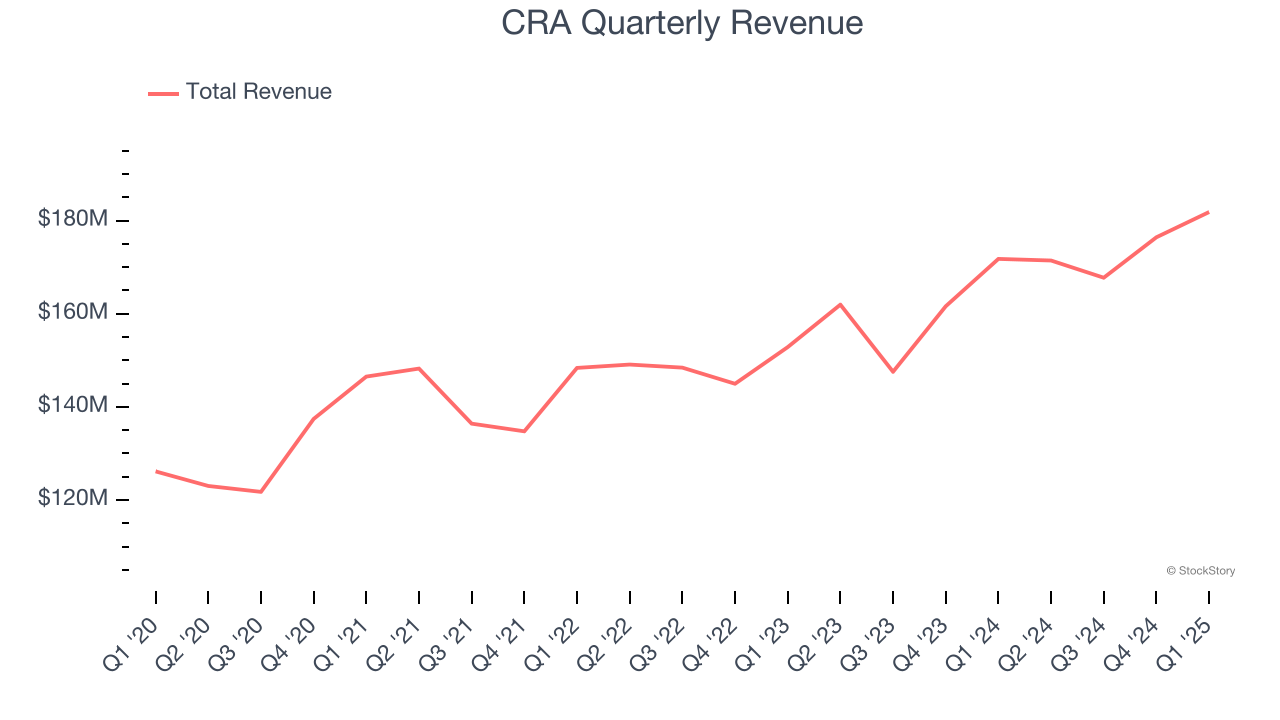
We at StockStory place the most emphasis on long-term growth, but within business services, a half-decade historical view may miss recent innovations or disruptive industry trends. CRA’s annualized revenue growth of 8.2% over the last two years aligns with its five-year trend, suggesting its demand was predictably strong. 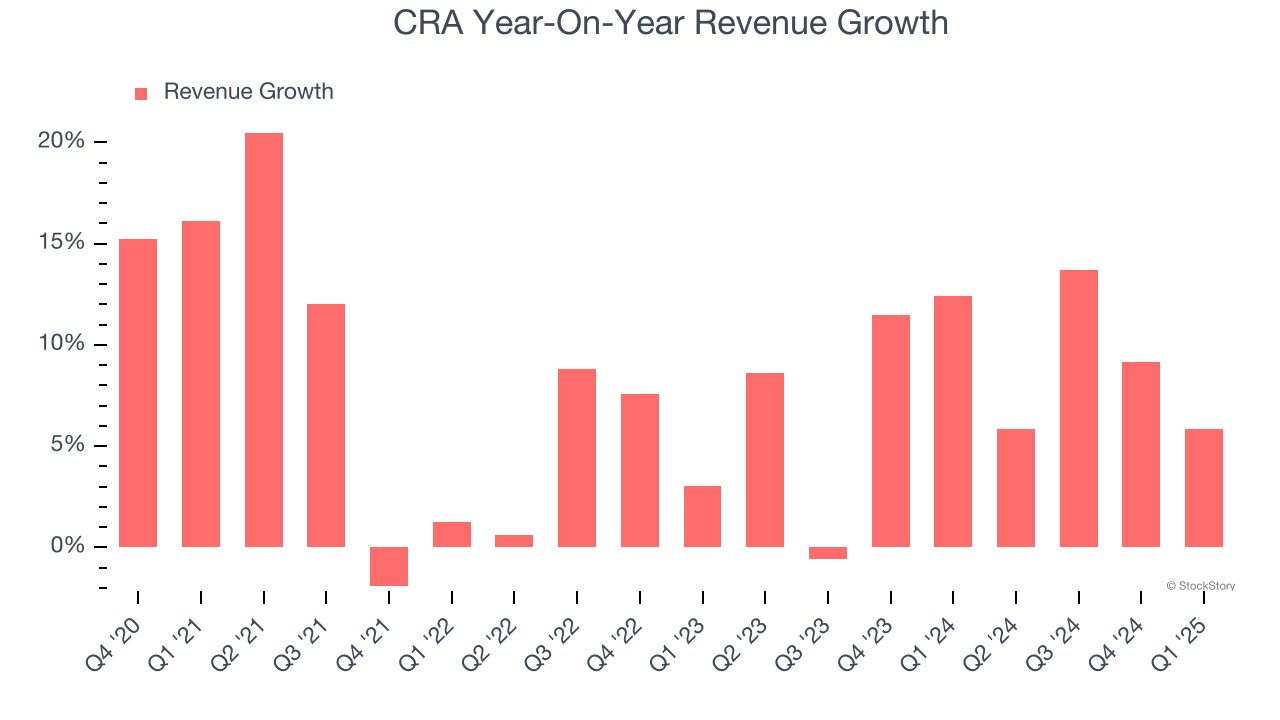
This quarter, CRA reported year-on-year revenue growth of 5.9%, and its $181.9 million of revenue exceeded Wall Street’s estimates by 3%.
We also like to judge companies based on their projected revenue growth, but not enough Wall Street analysts cover the company for it to have reliable consensus estimates.
Unless you’ve been living under a rock, it should be obvious by now that generative AI is going to have a huge impact on how large corporations do business. While Nvidia and AMD are trading close to all-time highs, we prefer a lesser-known (but still profitable) stock benefiting from the rise of AI. Click here to access our free report one of our favorites growth stories.
Operating Margin
CRA was profitable over the last five years but held back by its large cost base. Its average operating margin of 9.8% was weak for a business services business.
On the plus side, CRA’s operating margin rose by 2.9 percentage points over the last five years, as its sales growth gave it operating leverage.
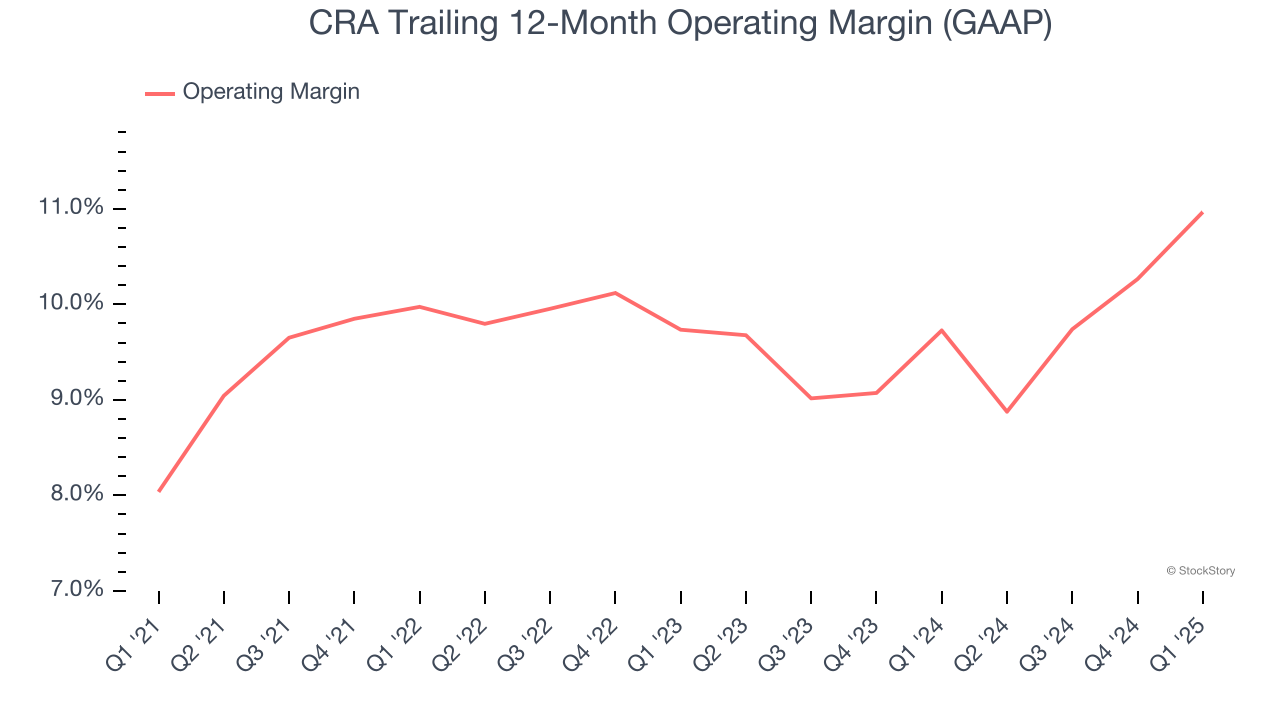
In Q1, CRA generated an operating profit margin of 14%, up 2.6 percentage points year on year. This increase was a welcome development and shows it was more efficient.
Earnings Per Share
We track the long-term change in earnings per share (EPS) for the same reason as long-term revenue growth. Compared to revenue, however, EPS highlights whether a company’s growth is profitable.
CRA’s EPS grew at an astounding 18.8% compounded annual growth rate over the last five years, higher than its 7.9% annualized revenue growth. This tells us the company became more profitable on a per-share basis as it expanded.
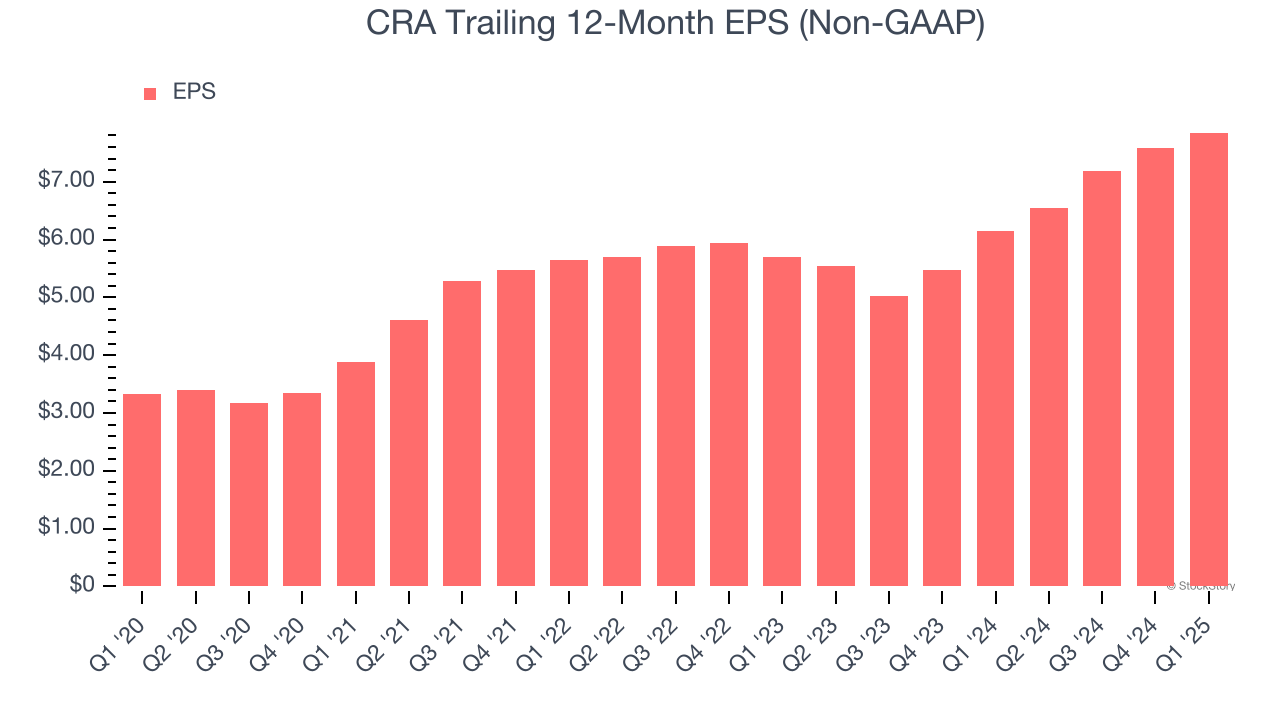
We can take a deeper look into CRA’s earnings to better understand the drivers of its performance. As we mentioned earlier, CRA’s operating margin expanded by 2.9 percentage points over the last five years. On top of that, its share count shrank by 14.6%. These are positive signs for shareholders because improving profitability and share buybacks turbocharge EPS growth relative to revenue growth. 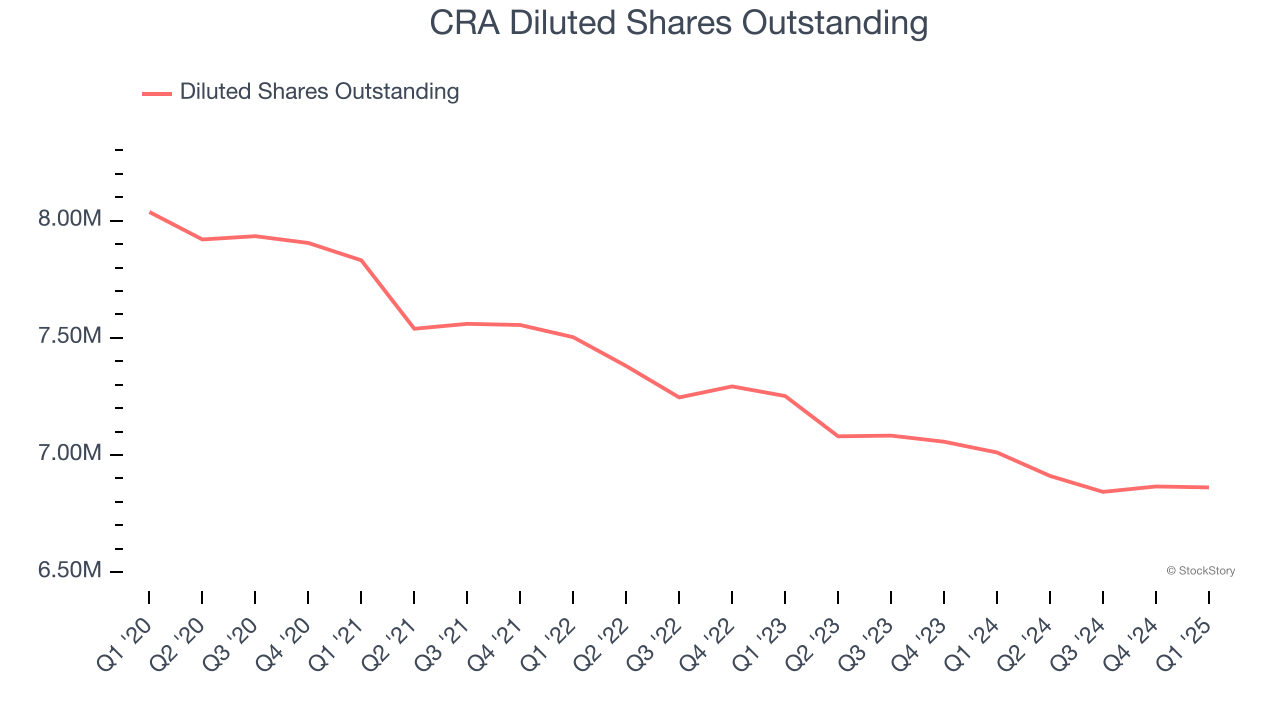
In Q1, CRA reported EPS at $2.22, up from $1.96 in the same quarter last year. This print easily cleared analysts’ estimates, and shareholders should be content with the results. Over the next 12 months, Wall Street expects CRA’s full-year EPS of $7.85 to grow 2.2%.
Key Takeaways from CRA’s Q1 Results
We enjoyed seeing CRA beat analysts’ revenue, EPS, and EBITDA expectations this quarter. Zooming out, we think this was a solid print. The stock remained flat at $160.45 immediately following the results.
So do we think CRA is an attractive buy at the current price? When making that decision, it’s important to consider its valuation, business qualities, as well as what has happened in the latest quarter. We cover that in our actionable full research report which you can read here, it’s free.
